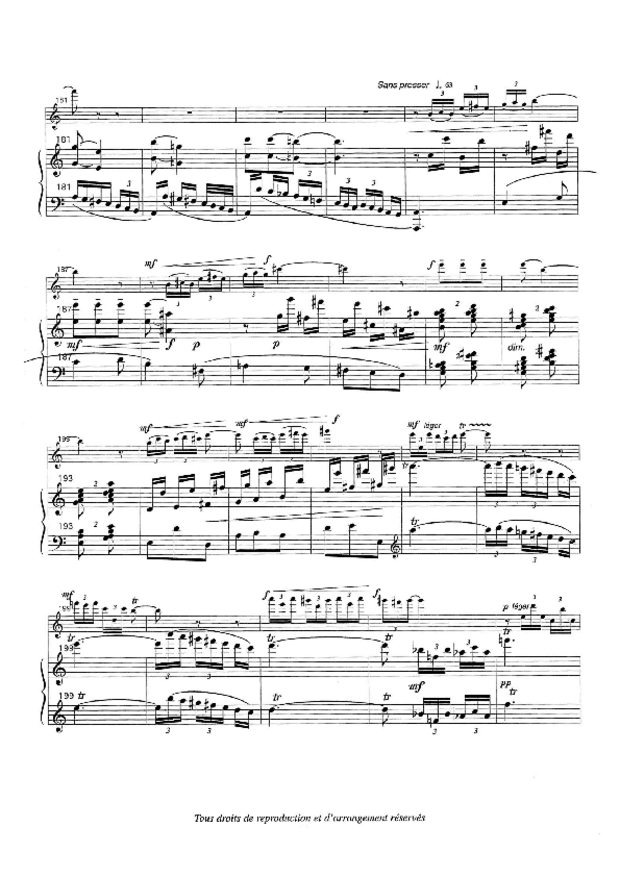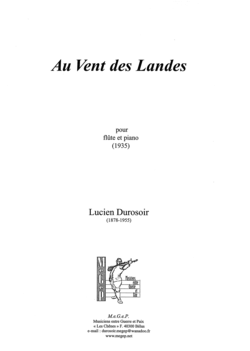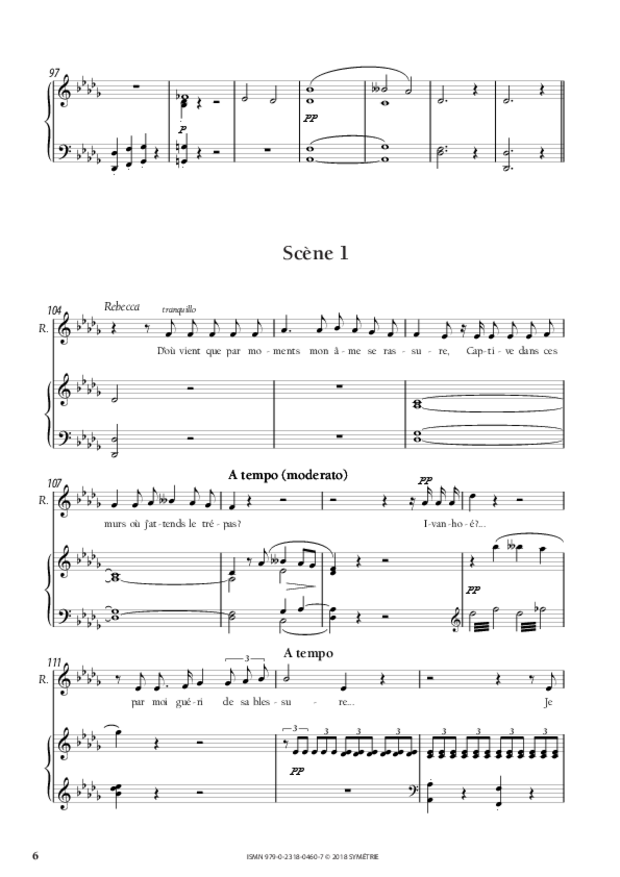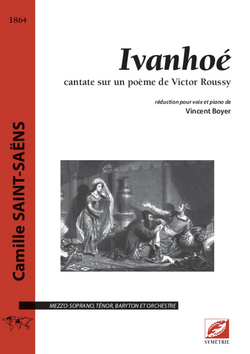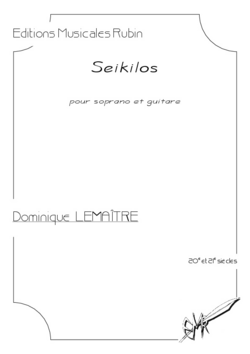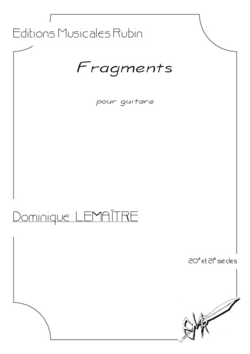One should consider this work as an opera scene in which the protagonist talks with his own reflection in the mirror. It may be his own first name that he is chanting throughout the piece because his double challenges him. If not, I would suggest Ludka for a female, Ludwig for a male.
This short and very intimate piece plays on the different levels of a reading of Sylvie Germain’s text and can be seen according to the four writing senses: literal, allegorical, moral and anagogical. The last is particularly underlined by the music.
The voice’s many expressive resources are required here: melodic, spoken/sung, spoken (recited, chanted…), white voice, whisper…
The piece may be sung by a mezzo soprano with a transposition down. The crotals should therefore be transposed accordingly.
Synopsis
A woman (or a man) turns towards the window of the train compartment in which she (he) is travelling without any hope of return. She (he) sees the gaze of her (his) own reflection in the window. This gaze is both her (his) own and strangely similar to the one of that woman (man), glimpsed a few moments before during a previous stop in a small town.
In this gaze, as in the stranger’s, there is the same somewhat painful gravity, the same expression of expectation and patience. She (he) doesn’t know whether it is her own (his own) reflection or the other’s. The flagrancy of the reflection makes recognition impossible. Stretching her (his) hand towards the window, her (his) fingertips brush the closed lips of the reflection. Its mouth then opens and starts to talk to her (him) in a mute and feeble voice.
Nomenclature
soprano ou ténor solo
